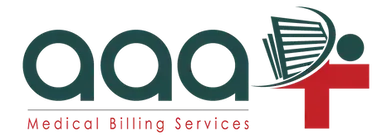
In today’s data-driven healthcare environment, providers are under increasing pressure to manage complex revenue cycles while ensuring compliance, reducing costs, and accelerating reimbursements. One of the most transformative solutions to these challenges is automation in medical billing. From streamlining the medical billing claims process to enhancing accuracy in DME coding, integrating advanced technology and automation is revolutionizing how healthcare providers and medical billing companies operate.
Whether you’re a small practice managing billing in-house or working with a medical billing company in Texas, embracing automation can dramatically improve workflow, reduce denials, and elevate your entire medical billing and revenue cycle management strategy.
Why Automation Is No Longer Optional?
Manual billing processes often lead to:
- Data entry errors
- Delayed submissions
- Missed claim follow-ups
- Increased denial rates
- Higher administrative costs
Automation addresses these issues head-on. By integrating intelligent technology into the medical billing cycle in Texas and beyond, healthcare organizations can ensure more consistent, accurate, and efficient operations.
Key Benefits of Billing Automation
1. Faster Claims Processing
Automation reduces the time between patient encounters and claim submission. With integrated systems, information flows directly from the clinical side (EHR) to the billing software — minimizing human error and expediting the medical billing claims process.
For practices using durable medical equipment billing services in the USA, this speed is essential. DME claims often require complex documentation and multiple steps — and automation ensures everything is submitted promptly with the necessary supporting files.
2. Improved Coding Accuracy
Accurate coding is the backbone of successful billing. Technology-enhanced medical billing and coding services now include built-in logic to:
- Suggest appropriate CPT/ICD-10 codes
- Flag mismatches in clinical documentation
- Prevent undercoding and overcoding
- Ensure compliance with payer-specific rules
Automation significantly reduces coding errors, which is especially critical for specialized areas like DME coding. Clean claims lead to fewer denials and faster reimbursements.
3. Enhanced Audit Preparedness
Audit risk is a constant concern in healthcare finance. With automation, every step of your billing process is logged and tracked — from claim creation to denial management — making it easier to navigate a medical billing audit.
A well-automated medical billing company in Dallas or elsewhere in Texas can help clients stay audit-ready by providing complete visibility into billing actions, documentation history, and compliance adherence.
4. Real-Time Eligibility Verification
Automated systems can instantly check patient eligibility and benefits before services are rendered. This means:
- Fewer rejected claims
- Accurate patient billing
- Enhanced financial transparency
This is a vital feature for any medical billing practice management in Texas, especially when dealing with varying payer rules and Medicaid plans.
5. Automated Denial Management
Denials are inevitable, but automation allows for faster response. Today’s systems can:
- Auto-flag denied claims
- Suggest corrections
- Auto-resubmit eligible claims
- Provide real-time denial trend analytics
This proactive approach helps medical billing companies resolve issues before they impact revenue, keeping the medical billing cycle in Texas as short and efficient as possible.
6. Optimized Cash Flow and Financial Forecasting
Automation enables data tracking and predictive analytics. By having access to dashboards and real-time metrics, billing teams can:
- Monitor KPIs like days in A/R
- Forecast monthly revenue
- Identify bottlenecks in the billing cycle
For healthcare organizations relying on medical billing management in Texas, this visibility into cash flow is key for strategic decision-making.
How Automation Supports the Modern Medical Billing Business?
Modern medical billing companies in Texas and across the U.S. are leveraging automation to deliver better service at a lower cost. Instead of spending hours on manual processes, billing teams can focus on:
- High-level denial analysis
- Compliance auditing
- Client communication
- Specialty-specific services like DME billing
By integrating automation, a medical billing business can scale more effectively, serve more clients, and achieve greater consistency.
Choosing the Right Billing Partner
When selecting a medical billing company, look for one that offers end-to-end automation as part of their medical billing management services. This includes:
- EHR and PM system integration
- Real-time claim tracking
- Automated patient statements and reminders
- AI-assisted coding and charge capture
- Secure cloud access and data backups
At AAA Medical Billing Services, we provide customized, automation-driven solutions for practices of all sizes, from primary care clinics to durable medical equipment billing services in the USA.
Final Thoughts: Embracing the Future of Billing
Automation isn’t just a tech upgrade — it’s a strategic move to enhance your practice’s efficiency, reduce costs, and stay competitive in a rapidly changing healthcare environment. From faster claim processing to improve compliance and audit readiness, integrating technology into your billing process is the key to long-term financial health.
